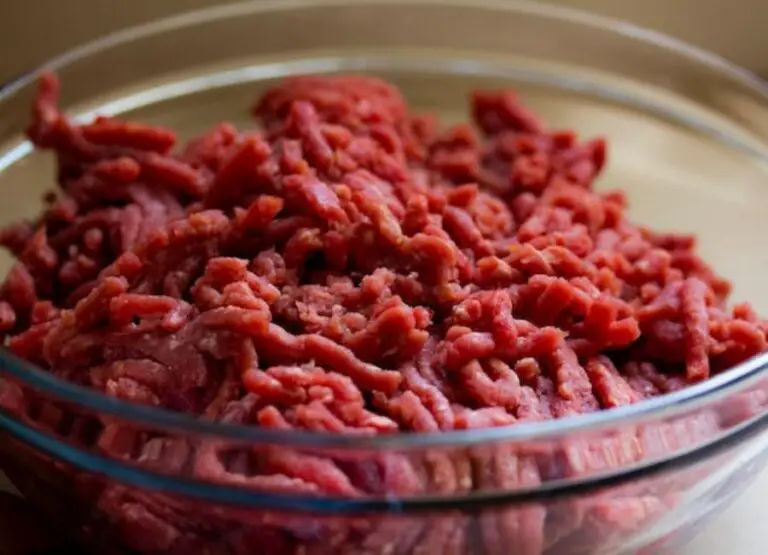13 Disadvantages of Eating Meat So Much
Eating meat is a popular choice for many people. Eating a lot of animal protein can lead to iron deficiency and other health problems.
It can be satisfying, fulfilling, and tasty. However, many people don’t know about the disadvantages of eating meat.
For this reason, it’s important to have a balanced diet that includes vegetables and plant-based proteins as well as meat.
However, there are a variety of disadvantages to eating meat as well. There are also reasons why you should eat meat.
That’s why you need to know the risks before making your final decision.
It is important to note that humans have been eating meat for centuries. Beef, pork, chicken, lamb, turkey.
They’ve all been staples in our diet and ways to get the nutrients we need to live.
But is it really that healthy? What about the risks?
Eating meat is a controversial topic. Some people believe that an animal should be killed for its meat, while others believe that it is unethical and cruel. It is impossible to please everyone.
Disadvantages of Eating Meat so Much
Eating meat has both benefits and drawbacks. Studies have shown that eating meat can be bad for our health in some ways.
Here, are some disadvantages of eating meat:
Eating meat raises the risk of high blood pressure
Sodium is a major worry since it can cause high blood pressure, stroke, and heart failure if consumed in excess.
Processed meat has around 300 milligrams of salt per ounce, whereas unprocessed meat contains only 79 milligrams.
Younger people should limit their daily salt intake to less than 2,300 milligrams, while the elderly and those at risk of hypertension should limit their intake to fewer than 1,500 milligrams.
Eating meat on a regular basis will simply raise your salt levels, which can contribute to high blood pressure.
Eating meat increases the risk of obesity
While there was a relationship between frequent red meat consumption and obesity, researchers observed that individuals who ate the most consumed 700 more calories per day than those who ate the least.
While numerous observational studies have linked red and processed meat consumption to obesity, the most relevant component is overall calorie intake.
According to a controlled study, weight loss can occur despite a heavy meat diet.
Eating meat increases the risk of food poisoning
Consuming meat on a regular basis raises your risk of food poisoning since animal products are commonly contaminated with excrement during slaughter or processing.
According to the US Department of Agriculture (USDA), contaminated animal flesh accounts for 70% of food poisoning.
E. coli, Salmonella, and Campylobacter are responsible for an estimated 76 million illnesses, 325,000 hospitalizations, and 5,000 deaths in the United States each year.
Eating meat raises the body’s acidic level
Meat is one of the most acidic foods consumed by the average North American. The body finds it tough to break down and digest, and the kidneys must work extra hard.
As a result, the body creates an abnormally large amount of acid. Excessive acid depletes the immune systems of the body, increasing the risk of infection and contributing to chronic illnesses.
Another factor to consider is the quality of meat consumed by the majority of people: it is typically fried, overdone, and lacking in green vegetables.
This not only raises acidity in the body but also does nothing to assist neutralize it. This ratio can be restored by eating more vegetables throughout the day.
Eating meat raises the risk of heart attack
The main disadvantages of eating meat on a regular basis are the increased fat, cholesterol, and salt levels.
Energy, the creation of cellular membranes, and the synthesis of specific hormones all require dietary fat and cholesterol.
Meat, on the other hand, is high in saturated fat and cholesterol, both of which increase the risk of heart attack and atherosclerosis.
Eating meat raises the risk of toxic absorption
Animals absorb poison like sponges and fat makes up the bulk of their biological makeup, their bodies may accumulate an excessive amount of contaminants.
Animals who eat a poisonous diet carry the toxins with them for the remainder of their lives, eventually winding up in the food they eat.
The skin and fat of sea life that swims in polluted oceans and streams are very absorbent. As a result, mercury and other heavy metals can be detected in a variety of fish and shellfish.
Eating meat raises the risk of osteoporosis
Eating meat on a regular basis is linked to heart disease as well as other health issues such as osteoporosis.
Protein overabundance is detrimental to the body, contrary to common assumptions.
Furthermore, increased meat intake might result in an increase in fatty deposits in the body, which can contribute to plaque formation.
Many of our tissues and bones can become calcified, leading to long-term diseases like osteoporosis.
Eating meat raises the risk of cancer
A heavy red meat diet has been associated with a range of cancers, including intestinal, prostate, renal, and breast cancers, according to observational studies.
Almost all major studies, on the other hand, discovered a connection between cancer and well-done meat, PAHs, or HAAs, rather than red meat itself.
High-heat cooking, according to this study, had a substantial influence.
Regardless of the method of processing you choose for your meat, consuming meat on a daily basis raises your cancer risk.
Eating meat raises the risk of diabetes
A number of studies have also discovered a connection between processed or red meat consumption and the development of type 2 diabetes.
A connection between red and processed meats and an increased risk of diabetes has been shown by certain observational studies.
Other dietary factors, however, may have an impact on this.
Eating meat raises the level of saturated fats
Although saturated fat is good for living things, the human body is incapable of breaking it down in a healthy way.
The majority of people eat too much saturated fat from animals, which can lead to serious health issues.
Furthermore, many individuals consume fried meats, fatty cuts, and skin with little regard for healthy alternatives, leading to plaque accumulation, heart disease, and other illnesses including obesity and diabetes.
Eating meat raises the risk of stroke
It’s no surprise that meat causes blood vessel blockages, which can lead to strokes.
Too much red meat consumption, in particular, has been related to a 47 percent increased risk of suffering an ischemic stroke.
Because eating meat regularly raises the risk of stroke, eat more vegetables and keep your mind clean.
Eating meat raises the risk of harmful cholesterol
Cholesterol is harmful and may cause blocked arteries and heart disease, but a vegan diet has no cholesterol because it is only present in animal-based foods.
There is a lot of meat that contains much harmful cholesterol and when you eat them you get this cholesterol, so watch the type of meat you eat.
Eating meat raises the accumulation of harmful compounds in the body
Cooking meat at high temperatures can cause chemical reactions that result in excessive amounts of hazardous chemicals.
Processed meats, such as salami, smoked ham, and hot dogs, may potentially include harmful compounds.
However, these components can also be present in chicken and even vegetables, which do not link with stomach cancer in the same way as processed red meats do, so additional research may be required.





![Is Deer Meat Bad For You [Answered]](https://foodcreeks.com/wp-content/uploads/2023/02/Is-Deer-Meat-Bad-For-You-768x555.jpg)
![How Long Can Raw Meat Sit In The Fridge [Answered]](https://foodcreeks.com/wp-content/uploads/2023/03/How-Long-Can-Raw-Meat-Sit-In-The-Fridge-768x555.jpg)
![Why Ground Beef Looks Grey [Explained]](https://foodcreeks.com/wp-content/uploads/2023/03/Ground-Beef-Looks-Grey-768x555.jpg)